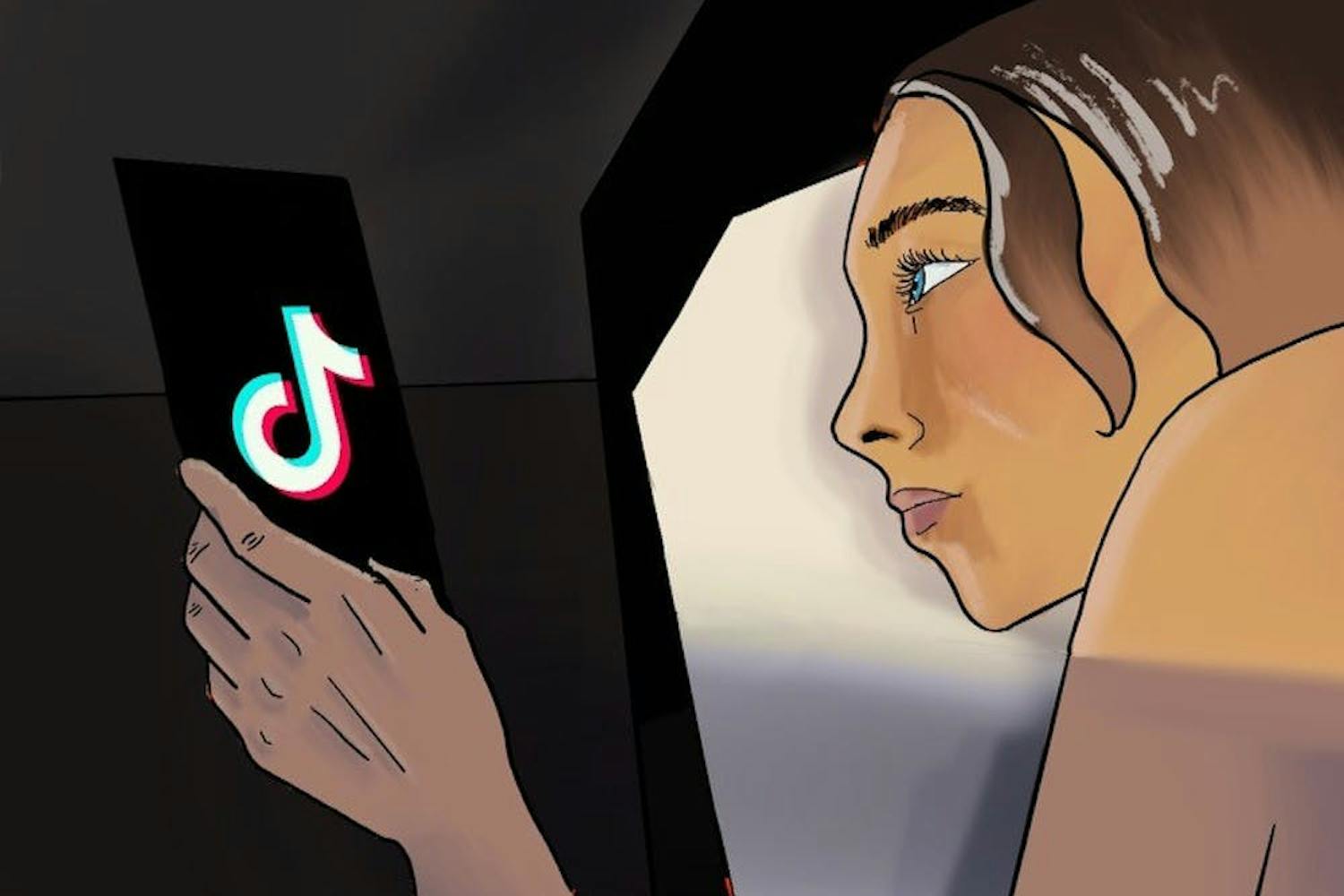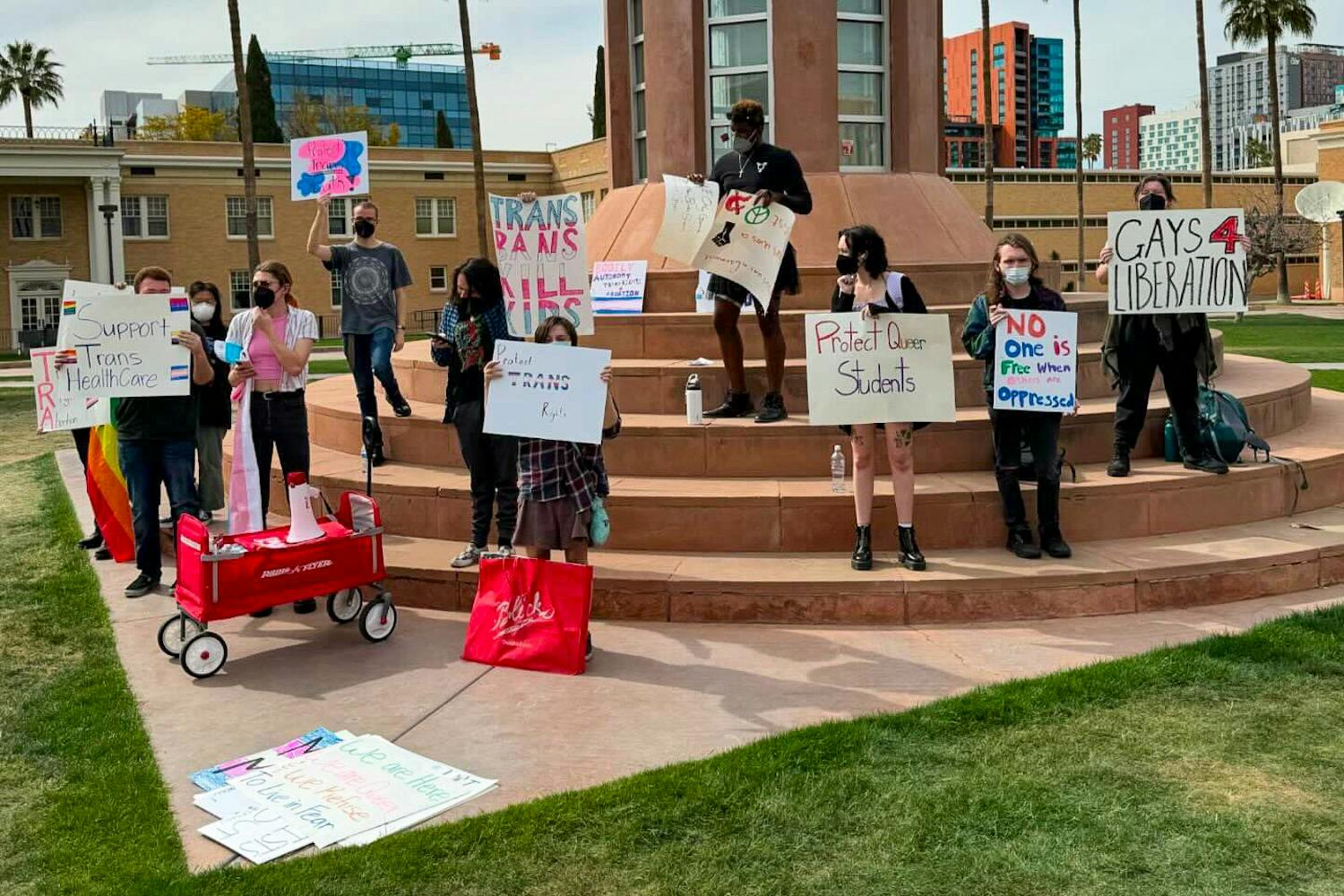There are many speculations as to why college students move away from religion, but it is seldom discussed how they cope and find meaning when it happens.
According to recent Pew research data, 46 percent of people who have graduated from college claim that religion is important to them. Meanwhile, over 58 percent of people with a high school diploma or less see religion as fundamental to their lives.
According to Denise Bodman, a lecturer in the School of Social and Family Dynamics, the reasons for college students straying away from religion are inherent to that transitional period in their lives.
“We know that there are changes in adolescent thinking, where they are able to think abstractly," Bodman said. "So, it shouldn’t come as a surprise that young people start (to) question their beliefs in God.”
Urban Stewart, a junior double majoring in global politics and business management, said he was raised in an isolated Fundamentalist Church of Jesus Christ of Latter-Day Saints community.
Stewart said he grew up in a home with multiple sister-moms and scores of siblings.
“Growing up (in) that home was the only type of home I knew, but there was some part of me that said that lifestyle is just not for me,” he said.
Stewart said asking too many questions led to being kicked out of his church and family.
“My whole identity and confidence was based off my father’s opinion of me," Stewart said. "It’s where I found value.”
This was at times a "terrifying" experience, he said.
"I had to pull my self-image out of what my father thought of me, to create a belief system for myself and how I found value," Stewart said.
This redefinition of identity can have emotional and mental consequences, Bodman said.
“Religion is a very convenient way to establish identity, and when we remove it, there is a vacuum,” she said. “Depression, anger, anxiety, guilt, loneliness — even our health can be affected by a loss of faith. It can also mean a feeling a liberation, freedom to choose. It’s a time to find our identity.”
Bodman said she believes that moving away from religion can be both a positive and negative experience.
“If our experience with religion is generally a negative one it can be a positive experience (to leave the faith), but, conversely, if our experiences with religion are positive, leaving our faith can be a negative experience,” she said.
Stewart said his ability to cope with this crisis of faith was rooted in the opportunity to begin choosing for himself.
“Eventually, I realized this was my choice," he said. "It wasn’t so much about throwing away all my beliefs as much as it was saying ‘Hey, I’m open to new possibilities in this life.’”
This openness is a consistent theme with many people who lose their faith as young adults.
Michael Johnson, a first-year doctoral candidate in music performance, said following the journey of losing his faith, he became more assertive with his decisions.
“I now want to believe as many true things as possible," he said. "When I left my faith, I began looking into more and more religions in a studying way.”
Johnson said he never found answers that were satisfying to him in religion, but the search led him to a revelation of his own.
“When I came to a stronger understanding of the scientific method and why we use it, I realized I was fascinated with how we justify our beliefs,” he said.
But, this feeling of certainty can go both ways.
Lauren Sandoval, a museum studies freshman, said she grew up in church and has found herself questioning her faith on several occasions.
Despite these moments of doubt, she said feels more confident now than before in her beliefs.
“It brings me and my family comfort … My faith binds me to my friends and family," she said. "Without it, I wouldn’t have any moral foundations to stand on.”
Bodman said it is an equally powerful and healthy decision to hold on to a belief system after questioning it.
"You want people to question their beliefs because they'll be stronger and more mature in their faith, rather than just have a belief hoisted on them without any critical questioning or thinking," she said.
She said there are ways to go about it that are healthy and safe.
"Don't just jump from the frying pan into the fryer," Bodman said.
Bodman said it is important to be open about questioning faith, whether it results in a new belief system or a strengthening of existing beliefs.
“I think it’s good for them to understand that this is not abnormal," she said. "It’s okay to question your beliefs. It’s something you have to figure out for yourself. Don’t be afraid to talk to people who you believe know you, and understand that you don’t have to toss out everything."
Reach the reporter at jospino@asu.edu or follow @joashospino on Twitter.
Like The State Press on Facebook and follow @statepress on Twitter.




